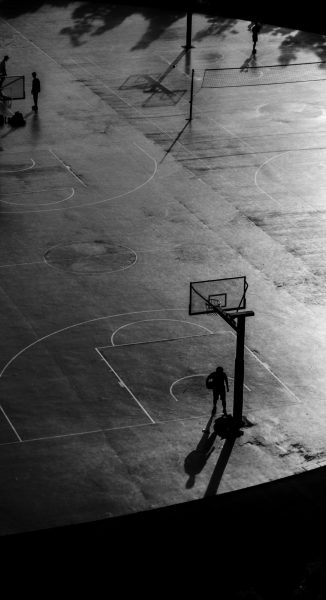Societal Expectations may be pushing students too far
A look into what burnout is doing to the student body
According to the American Psychological Association’s 2017 survey, 36 percent of teens have felt fatigued or tired due to burnout and have reported to have an average stress level of 5.8 on a 10 point scale during the school year compared to a 4.6 in the summer. With so many teens going through an immense amount of stress it is important to think about how we got here?
Well, according to school psychologist and social worker, Emily Hancock, it’s been a long experienced social phenomenon.
“I think that it’s been a long history of you need to work, work, work, work, work as hard as you possibly can. It just shows you’re a hard worker when in reality it doesn’t.”
But this is not just prevalent in teens, rather the habit of overworking yourself is ingrained into students from a young age.
“Little kids are going into school for their first time and having to be sitting at a desk taking tests and doing homework. As they are little it starts to paint the picture for them that they have to do all of these things in order to be successful or in order to be a good student” said Hancock.
However, much of this pressure on students also comes from what is expected of them by society.
“I think that in our school especially, many students feel the need to overwork themselves when they take really rigorous classes and try to do so many extracurriculars and all of these other things. I feel like the society that we live in promotes overworking as a means of being the best and becoming successful rather than promoting each individual person’s health and that being a success in itself” said senior Kenya Greene.
As a result of overworking many students are experiencing mental disconnect and even behavioral changes.
“So you have a student who’s super dedicated to their schoolwork, perfectionist, and needs to have straight A’s. Sometimes I see it go the opposite way where they get to a point where they are like ‘I can’t do this anymore’ or they get so wound up that they’re anxiety skyrockets, they’re depression skyrockets and they’re missing school more often than not or they’re feeling sick more often than not” said Hancock.
Along with the mental illnesses that come from burnout, lower self-confidence is also apparent when overworking doesn’t give students the results they want.
“I just like felt like it was a lack of me trying rather than the fact that I was just struggling in general. I just thought like if my grades are dropping, it’s because I’m not trying hard enough, so I’ll just dedicate more time to this, but my results were not getting better because I just wasn’t learning effectively online [during the COVID-19 pandemic]” said Greene.
However, by engaging in extracurricular activities, many students have been able to find solace from their stressors.
“I thought that one of the outlets that I had strangely enough was like clubs. I was never really a big club person but sophomore year I started like going to clubs that had Zoom meetings and I’ve found that really nice because it was kind of like an outlet to talk and we’d have hour long meetings so those were really nice” said Greene.
But some argue that in order to really change the lives of students being pressured with so much work, people need to talk more about it.
“I think it should be taught. Having teachers be flexible, understanding of kids needs and their mental health is very important. I just think that it needs to be a whole school wide thing and almost taught in a way that makes students aware of what the red flags are to pay attention to when you are approaching your burnout stage” said Hancock.
Overall, students need to know that putting yourself first is the most important thing that they can do to help themselves when feeling overwhelmed.
“I’d want them to understand that taking hard classes and doing the most is not the end all be all and that even if they do the most and even if they take all those hard classes and do a thousand sports and a thousand extracurriculars, it does not make you any more distinguishable than somebody who does a class at the level that they can handle and does things that they love and they’re really passionate about. I’d want kids and other students to understand that despite what you might think you don’t need to do so much to see results” said Greene.
Your donation will support the student journalists of East Lyme High School. Your contribution will allow us to purchase equipment and cover our annual website hosting costs.





